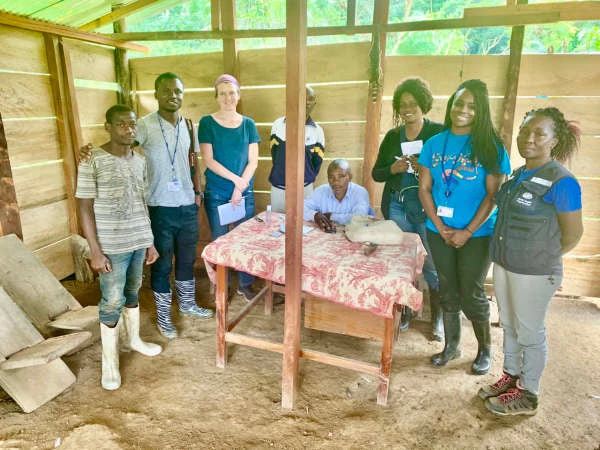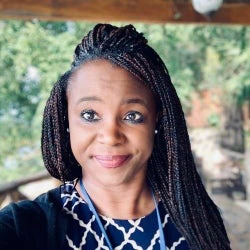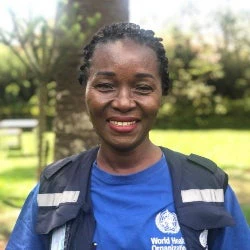A week before our mission to Mambasa, a territory located in the Ituri Province of the Democratic Republic of Congo (DRC), a member of the local tribe’s royal family, suspected to be infected by Ebola, was transferred to an Ebola treatment unit in Komanda about 80 kilometers away from his home. Although, he did not have Ebola, he passed away and was subsequently buried in Komanda.
In his village, though, a grave had been prepared and left open in anticipation of the deceased’s arrival. According to tradition, the dead of the tribe are returned to their village of origin for burial. When it became clear that the body was not going to be returned, members of the home village began to panic, because an empty grave is considered a curse on their harvest which causes famine and illness.
The widespread anxiety and fear put the Ebola response in the area on hiatus, as the village members refused to let responders enter their village for fear of not being able to recover their dead. For the response team, the crisis was about Ebola, but for village members it was about the empty grave. It was clear that in order to effectively safeguard the community’s health, we would need to address their wellbeing and beliefs in tandem, instead of focusing only on the Ebola response.
Working with village leaders
In order to bridge this gap, Dr. Julienne Anoko, a WHO anthropologist, asked the village chief, for specific recommendations. Mr. Puma, the chief, emphasized the need to go through the “chefs coutumiers” who are village leaders serving as gateways into the community.
The chefs coutumiers explained that in order to restore proper rites, one needed to buy oil, salt, food and a goat that could be shared with the village and other traditional chiefs. In addition, a substitute burial with the trunk of a banana tree was needed to replace the body of the deceased. Dr. Anoko set into action and mobilized resources from WHO so that these traditions could be honored. After the rite was performed and the tomb closed, the village celebrated. This was the first step toward rebuilding trust between the Ebola responders and the village.
Then Mr. Puma suggested that the chief of the Batwa tribe join us for a meeting. He recognized that the Batwa, who are forest dwellers, are often stigmatized and marginalized, and wanted their voice to be heard. The chief of the Batwa expressed an interest in having more of his people participate in the Ebola response.
Lessons Learned
Upon our return to the central emergency operation center, Annie Mutombo from the National Coordination Team relayed our experiences to the Mambasa Ebola coordinator requesting that both the “chef coutumier” and the “chef du peuple autochtone” officially be involved in the Ebola response. The very next day, both chiefs met with the Mambasa Coordinator and they have assisted with Ebola-related community engagement activities ever since.
Though there have been many lessons from the Ebola response activities, one of the most important lesson learned is that respecting traditional death rites is necessary for treating the survivors. The response teams also must engage with traditional chiefs early on as they are critical points of access to their communities.
We cannot forget to respect basic traditions of the people we serve. The act of listening and better understanding community concerns should remain the cornerstone of all interventions.
While there have been many advances, such as engagements with anthropologists, there is still more to do to ensure that building trust is embedded into all parts of the response. This story is just one example of many on how listening can lead to a more effective Ebola response.




Join the Conversation